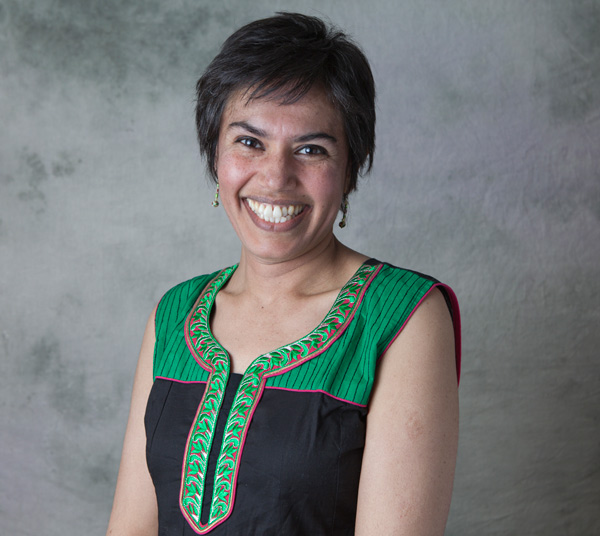By Judith van Berkom –
Inter Pares – which means among equals – believes in solidarity, not charity, as an approach to international cooperation. For 40 years, they have worked closely with local and national activists and more than a hundred activist organizations worldwide to build peace, advance justice and globalize equality.
Rita Morbia, Executive Director of Inter Pares, started out as a program manager 15 years ago. In addition to her senior position in the organization, she is also the program manager for Sudan and the Philippines. With a background in biology, she explains that most of her colleagues (15 in total) come from a variety of backgrounds. What they have in common is a passion for the work they do.
Rita was born in India but her family immigrated when she was young. She has lived in Westboro for the past ten years with her husband, two daughters, and extended family.

“Women’s rights features centrally in our work,” explains Rita, adding that Inter Pares works both internationally and locally. “We see a lot of commonalities around women’s issues,” says Rita. “In one of the programs in the Philippines, for example, we support a women’s health organization. Women in the Philippines face challenges around access to planning, proper skilled birth attendance, emergency services and/or obstetric care.”
Working in Africa, Asia, Latin America and Canada, Inter Pares focuses on six global issues: food sovereignty, women’s equality, peace and democracy, economic justice, health and migration. “We have strong relationships with organizations – long-term relationships because we share the same values and have common goals,” Rita explains.
The organization is funded in part by government and receives donations from individuals who believe in the work Inter Pares does here and abroad. In Canada, Inter Pares works, among other things, on policy issues such as ensuring that our health care system remains universal and continues to improve. Rita sits on the Board of the Canadian Health Coalition.
In the structure of Inter Pares, the issue of parity and equality is important. “It’s a flat or co-management structure,” explains Rita. “We all make the same base salary and we all make decisions together by consensus. As Executive Director, I have special responsibilities and report to the Board, but when we come together to make decisions, I’m one voice around the table. It’s a great way to work. Everyone feels supported and when we make a decision, we all have ownership over that decision.”
In Canada and abroad, Inter Pares has been involved in women’s equality by promoting feminism as a crucial element to coalition building, valuing cooperation, consensus-based decision-making and collective achievements.
As a result of the collaborative work of Inter Pares on issues of women’s equality and health in the Philippines, women now have a Reproductive Health Law that promotes equity and reduces maternal and child mortality. Inter Pares also supported the reproductive rights of women in Peru by financially supporting DEMUS, a women’s rights organization. These are but a few of the organizations achievements.
For more information go to interpares.ca.
